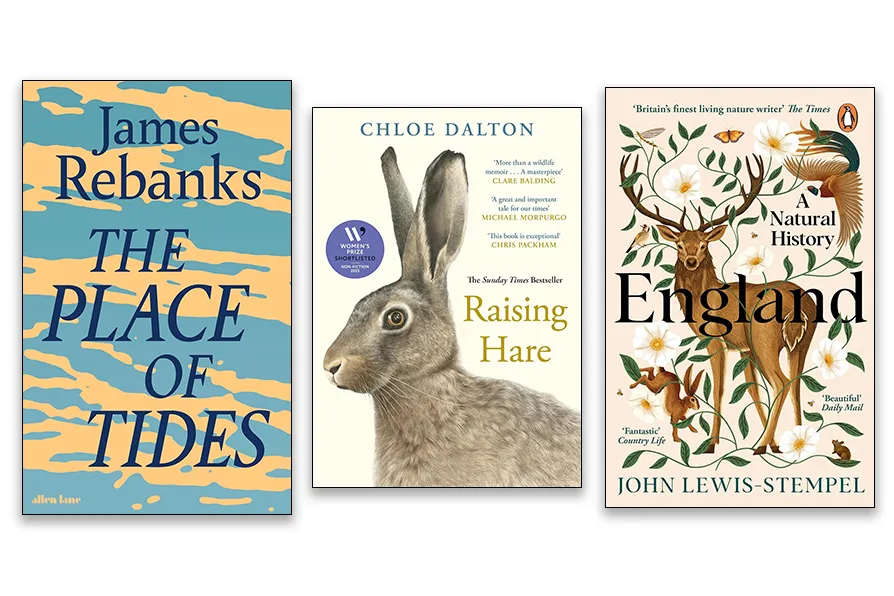RITA DI SANTO draws attention to a new film that features Ken Loach and Jeremy Corbyn, and their personal experience of media misrepresentation
PAUL DONOVAN recommends three new books that explore the human relationship with nature


THREE great books, with differing takes on the natural world, offer real challenges and insight for nature lovers.
Lake District-based farmer and writer James Rebanks has already produced challenging books in the The Shepherd’s Life and English Pastoral. But his latest book The Place Of Tides (Allen Lane, 2024, £10.99) is a more reflective work, written when Rebanks is at a crossroads in his own life.
Rebanks goes on a journey of self-discovery, involving spending time out with two of the women who work with eider ducks on the Norwegian outer islands. Rebanks spends three months with Anna and Ingrid, preparing nesting sites for the ducks, while also seeking to protect the birds from predators like otters, mink and sea eagles.
The account is beautifully drawn, showing Anna as totally absorbed and fulfilled by what she does (Ingrid is the apprentice). It is Anna’s last season doing the work that involves the final act of collecting the eider feathers from the vacated nests. These are then used to make eiderdowns. An old skill but being kept going by the women.
The picture is one of humans and nature in balance living sustainably together. Rebanks is at something of a crossroads in his life, driven and burning up — ignoring the things that matter. The three months with Anna and Ingrid see him relax and get things back into perspective as a result of this interchange with nature and someone who has got the equilibrium right. A real and cathartic process.
Chloe Dalton goes on a similar journey of self-discovery by a different route in Raising Hare (Canongate, 2025, £10.99). Dalton is working as a political adviser at the Foreign Office, when Covid hits. She ends up living, isolated in the country.
The story begins when she finds a leveret in the road. She brings it home and searches everywhere for information on what to do to bring up the young hare.
A rather beautiful story emerges as Dalton’s life is tied to the leveret, which remains based in the house but escapes to surrounding fields during the day, then returns. It has several young, with a variety of domesticity.
Dalton discovers nature through her interactions with the hares. She becomes a champion for the hares’ cause.
It is a fascinating story that manages to avoid the sentimental. Dalton, for instance, refuses to name the animals, seeing this as part of the humans’ efforts to colonise the wild world. A great insight.
John Lewis Stempel has a similarly unsentimental attitude to nature. A farmer, Lewis Stempel shoots for the pot. In many ways, he is the doyen of nature writers.
The breadth of his writing is unrivalled, managing to set things in a natural context, yet drawing in literary, musical and other references. So there are the works of Shakespeare, John Clare, William Wordsworth and Thomas Hardy. Similarly, the Kinks, Pink Floyd, Ralph Vaughan Williams and Edward Elgar get mentions.
England: A Natural History (Penguin, 2025, £10.99) is different from the first two books, covering estuaries, park, downs, beechwood, river, field, village, moor, lake, heath, fen and broad and coast. Lewis Stempel goes to different areas for these terrain, such as the Thames Estuary, the South Downs, Burnham Beeches and the Yorkshire Moors.
The book is packed with interesting insights, such as that the decline of cuckoos being linked to changes in farming, and that there are much better conditions for cuckoos in Scotland (a 30 per cent increase) and Wales (stable) than England (declining).
The route back to Africa seems to play a role in survival rates. The Scottish and Welsh birds go south east via Italy, while English birds go south-west through Spain.
Another interesting view is that well-managed grouse moors can be beneficial for biodiversity and other bird species.
Lewis Stempel is not a fan of driven shooting, but points out how managed moors retain good heather levels.
“When management ceases, the waders — the curlew, the plover, the lapwings — who shared the moor with the grouse decline,” he writes.
All three of these authors provide valuable insights into the natural world and, in the case of Rebanks and Dalton, the human psyche. They have a real resonance for those who find solace in the natural world.
I highly recommend all three books to anyone looking to learn more about the natural world and maybe even about themselves.










